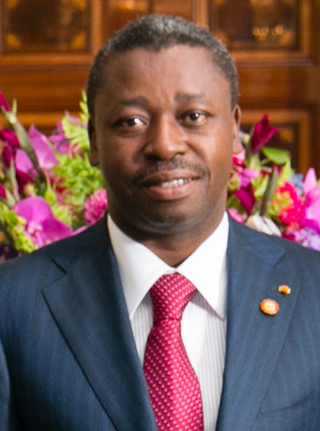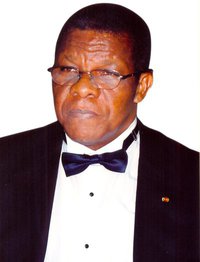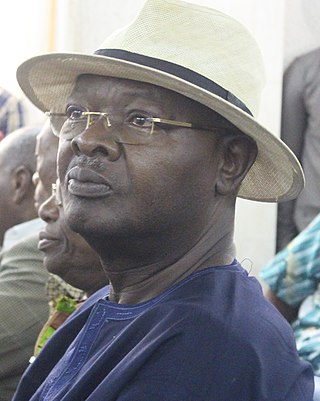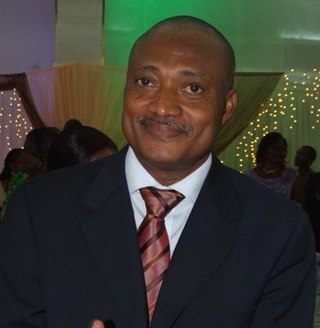
Togo, officially the Togolese Republic, is a country in West Africa. It is bordered by Ghana to the west, Benin to the east and Burkina Faso to the north. It is one of the least developed countries and extends south to the Gulf of Guinea, where its capital, Lomé, is located. It is a small, tropical country, which covers 57,000 square kilometres and has a population of approximately 8 million, and it has a width of less than 115 km (71 mi) between Ghana and its eastern neighbour Benin.
The history of Togo can be traced to archaeological finds which indicate that ancient local tribes were able to produce pottery and process tin. During the period from the 11th century to the 16th century, the Ewé, the Mina, the Gun, and various other tribes entered the region. Most of them settled in coastal areas. The Portuguese arrived in the late 15th century, followed by other European powers. Until the 19th century, the coastal region was a major slave trade centre, earning Togo and the surrounding region the name "The Slave Coast".

Politics of Togo takes place in a framework of a presidential republic, whereby the President of Togo is both head of state and head of government. Executive power is exercised by the government. Legislative power is vested in both the government and parliament. After independence, the party system was dominated first by the authoritarian Rally for the Togolese People, and later by its successor party, Union for the Republic.

Gnassingbé Eyadéma was a Togolese military officer and politician who was the president of Togo from 1967 until his death in 2005, after which he was immediately succeeded by his son, Faure Gnassingbé.

Faure Essozimna Gnassingbé Eyadéma is a Togolese politician who has been the president of Togo since 2005. Before assuming the presidency, he was appointed by his father, President Gnassingbé Eyadéma, as Minister of Equipment, Mines, Posts, and Telecommunications, serving from 2003 to 2005.

Presidential elections were held in Togo on 24 April 2005, following the death in office of long-time president Gnassingbé Eyadéma. The main candidates were Eyadéma's son, Faure Gnassingbé, and opposition leader Emmanuel Bob-Akitani. The elections and the preceding period were marked by violence, with many people reported killed in various incidents. According to the official results, Gnassingbé won the election, taking slightly more than 60% of the vote. Violence flared in the capital Lomé after the results were announced, and thousands fled into neighboring countries.
Fambaré Ouattara Natchaba was a Togolese politician. He was the President of the National Assembly of Togo from September 2000 to February 2005. He was a prominent member of the ruling Rally of the Togolese People (RPT) and a member of the Pan-African Parliament representing Togo.
Gilchrist Olympio is a Togolese politician who was a long-time opponent of the regime of Gnassingbé Eyadéma and was President of the Union of Forces for Change (UFC), Togo's main opposition party from the 1990s til 2013. Olympio is the son of Sylvanus Olympio, Togo's first President, who was assassinated in a 1963 coup. He is now an ally of the current regime of Faure Gnassingbe, the son of the late President.

The Rally of the Togolese People was the ruling political party in Togo from 1969 to 2012. It was founded by President Gnassingbé Eyadéma and headed by his son, President Faure Gnassingbé, after the former's death in 2005. Faure Gnassingbé replaced the RPT with a new ruling party, the Union for the Republic (UNIR), in April 2012, dissolving the RPT.

Joseph Kokou Koffigoh is a Togolese politician, human rights activist, and a poet who served as Prime Minister of Togo from 27 August 1991 to 23 April 1994. Elected as Prime Minister by the opposition-dominated National Conference in 1991, Koffigoh was given full executive powers and tasked with overseeing a transition to multiparty elections. Beginning in December 1991, however, President Gnassingbé Eyadéma increasingly reasserted his authority at Koffigoh's expense. Although Koffigoh remained in office, the opposition eventually abandoned him, feeling he had become too cooperative with Eyadéma.

Messan Agbéyomé Gabriel Kodjo was a Togolese politician who served as Prime Minister of Togo from 29 August 2000 to 27 June 2002.
Yawovi Madji Agboyibo was a Togolese attorney and politician. He served as Prime Minister of Togo from September 2006 to December 2007 and was National President of the Action Committee for Renewal (CAR), an opposition political party, from 1991 to 2008. He was the Honorary President of the CAR.

Jean-Pierre Fabre is a Togolese politician and the President of Togo's main opposition party, the National Alliance for Change.

Protests against Faure Gnassingbé have occurred throughout Togo, starting when President Faure Gnassingbé assumed power after the death of his father Gnassingbé Eyadéma in February 2005.

Presidential elections were held in Togo on 22 February 2020. Incumbent president Faure Gnassingbé of the Union for the Republic (UPR) was re-elected for his fourth term with 71% of the vote in the first round. His closest challenger was Agbéyomé Kodjo, a former prime minister and leader of the newly established Patriotic Movement for Democracy and Development, who received 19% of the vote.
The 1990–1991 Togo protests was a protest movement against then-president Gnassingbe Eyadema and his reforms. Strikes and demonstrations began by students on 5 October and soon became a daily movement which saw deaths and beatings while shootings and clashes between pro-government and anti-government demonstrators took place. Mass protests ended violently with clashes in November 1991.
The 2005 Togo protests and riots were demonstrations and rioting against the results of the presidential election and Faure Gnassingbe's takeover of power. Protests began in February with protesters demanding new elections and the end of the Gnassingbe dynasty. Around 100 were killed before the elections, but after the 2005 Togolese presidential election around 500 protesters were killed by Togolese Armed Forces, assisted by military-trained Rally of the Togolese People (RPT) militias.

France–Togo relations are the diplomatic relations between the French Republic and the Togolese Republic. Both nations are members of the Organisation internationale de la Francophonie and the United Nations.

Parliamentary elections are due to be held in Togo on 20 April 2024 in order to elect the 113 members of the National Assembly, alongside the first regional elections in the country.





















